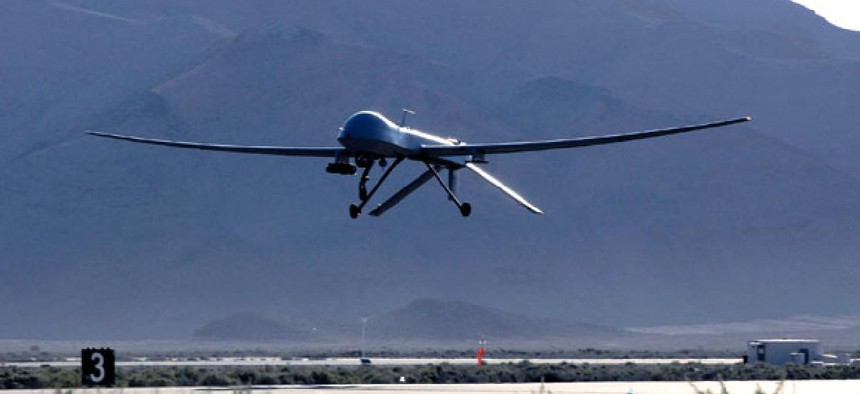FAA delays creating drone test sites due to privacy concerns

United States Air Force
Administrator tells Congress officials need to address privacy issues before moving ahead.
The Federal Aviation Administration has delayed establishing six drone test sites in the United States due to privacy concerns, acting Administrator Michael Huerta told Rep. Howard “Buck” McKeon, R-Calif., and other members of the House Unmanned Systems Caucus in a Nov. 1 letter.
The 2012 FAA Modernization and Reform Act required the agency to set up the test sites by August, following a rule-making process focused primarily on the safe operation of unmanned aircraft systems in the National Airspace System, which FAA controls. The law also called for full-scale integration of drones into U.S. airspace by 2015.
In his letter to Congress, Huerta said keeping “the people, aircraft and property in the world’s most complex airspace system safe while ensuring introduction of [unmanned aircraft systems] into this airspace system is thoroughly planned and carefully managed.”
Huerta said FAA expected to have identified the six test sites by the end of this year, “but increasing the use of UAS also raises privacy issues, and these issues will need to be addressed as unmanned aircraft are safely integrated.” He added, “we are working to move forward with the proposals for the six test sites as we evaluate options with our interagency partners to appropriately address privacy concerns regarding the expanded use of UAS.”
FAA “will fulfill those obligations in a thoughtful, prudent manner that ensures safety, addresses privacy issues and promotes economic growth,” Huerta concluded his letter.
The Electronic Privacy Information Center told FAA in its comments that the agency must consider the privacy implications of the “unparalleled surveillance capabilities” posed by widespread drone use. Jennifer Lynch, an attorney with the Electronic Frontier Foundation told Nextgov in August that FAA should conduct a privacy impact assessment on drone use.
Ben Gielow, government relations manager for the Association for Unmanned Vehicle Systems International, said in an interview that FAA should stick to its mandate to ensure airspace safety. “The FAA is not a privacy organization . . . if any kind of technology is abused, it’s a Fourth Amendment issue,” Gielow said. He said FAA must meet its statutory obligations to select the six test sites and leave privacy questions up to Congress.
Amie Stepanovich of EPIC said that since FAA is the only organization in the country that can authorize the use of drones, ensuring privacy is indeed part of its mandate. She viewed the letter from Huerta to Congress as a “positive step” and indicated that FAA views privacy as a critical issue in authorizing the widespread use of drones.
Since drones operated by police departments can peer into backyards, Stepanovich said, FAA should create a publicly accessible database that details drone operations. In addition, authorities should establish a mechanism for conducting surveillance only with a warrant, she said.






